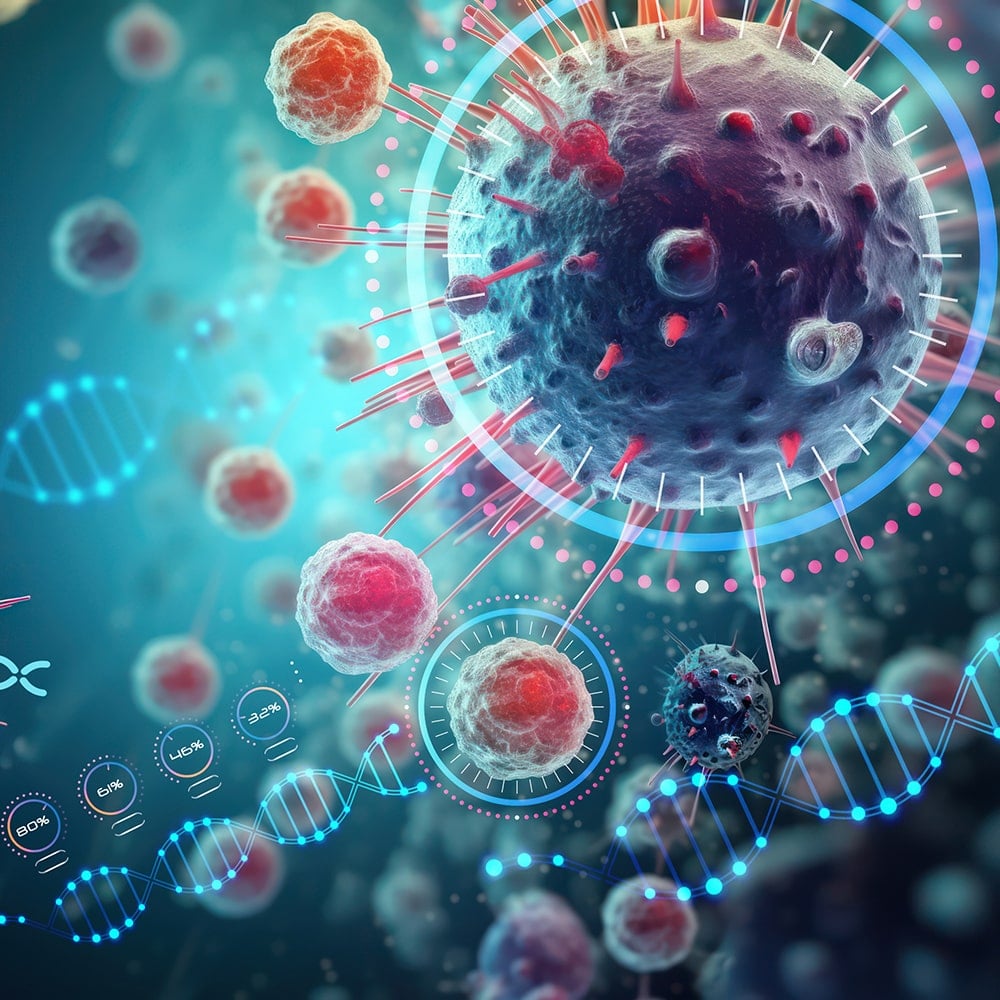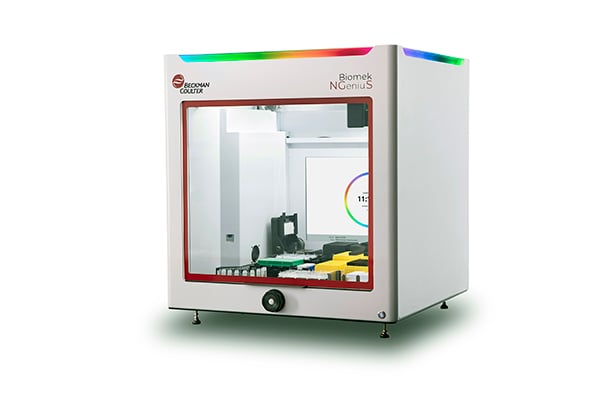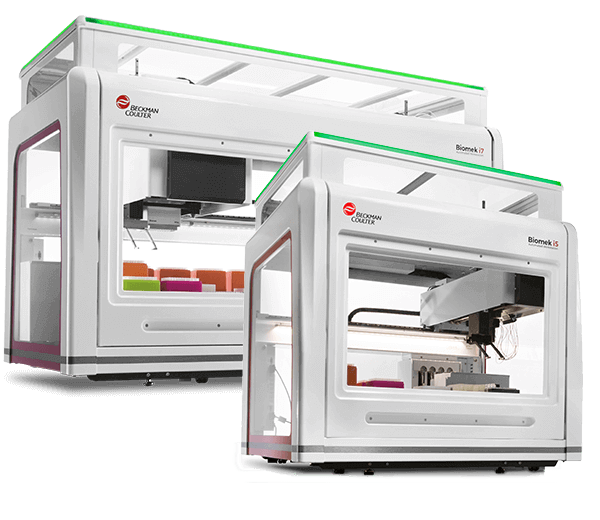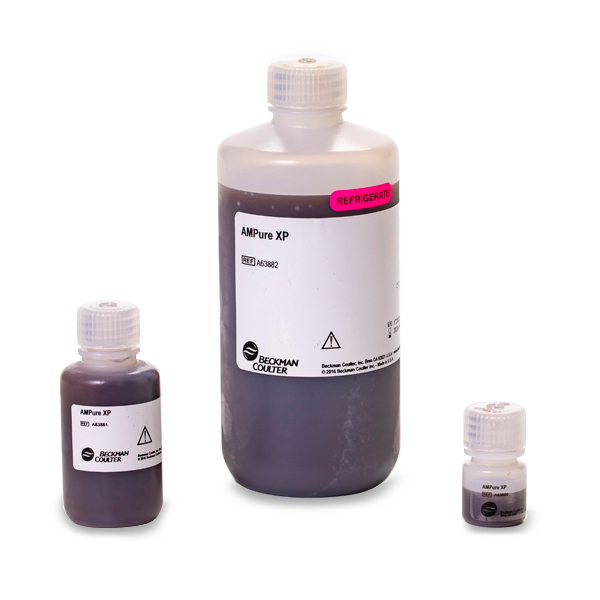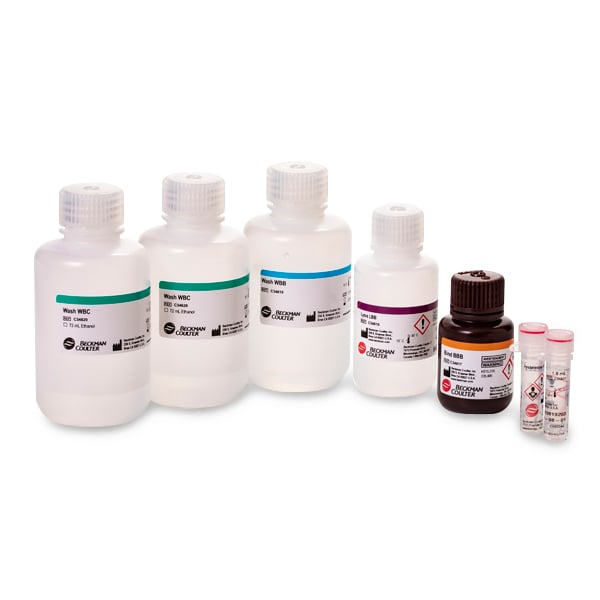Breaking down barriers to NGS for cancer research
Next-generation sequencing (NGS) has greatly enhanced our understanding of cancer biology, and transformed the study and treatment of this pervasive group of diseases. However, NGS technologies have traditionally been complex and costly, making them inaccessible to less established or well-funded oncology laboratories. Alexander Sahm, Global Product Manager for Biotech Workflow Solutions at Beckman Coulter Life Sciences, explores the current challenges that smaller labs face when adopting NGS workflows, and discusses how the Biomek NGeniuS Next Generation Library Prep System can lower barriers to molecular cancer research.
Cancers are one of the leading causes of death worldwide. They result from genetic mutations that disrupt normal cellular functions, leading to uncontrolled growth, suppression of cell death signaling, and angiogenesis.1
NGS plays a crucial role in cancer research, by allowing comprehensive analysis of these genomic alterations. Unlike traditional methods, NGS enables rapid and cost-effective sequencing of entire genomes or specific gene regions from both malignant and normal cells of individual patients.2 This allows researchers to identify specific mutations driving cancer development and progression, and to study clinically relevant tumor biomarkers. In turn, insights into the genetic basis of cancers enable the development of targeted therapies tailored to individual patients, improving treatment outcomes while advancing our understanding of cancer biology.
Making NGS more accessible
Unfortunately, NGS is often an unattainable approach for lower throughput labs. The library preparation step in NGS workflows is a time-consuming process that can take anywhere from 2.5 hours to several days to complete, depending on the exact workflow, and conducting these protocols manually may introduce pipetting inconsistencies and errors. Automating NGS library preparation can minimize these constraints, but accessibility is typically limited by the high costs of equipment and reagents, the complexity of automated solutions, and the specialized knowledge required to effectively implement them.
Recent advancements in NGS technologies are now democratizing this powerful tool, and modern life sciences companies are lowering sequencing costs and offering user-friendly automation platforms with comprehensive support services. This progress is bringing parallel sequencing within reach of smaller labs. Beckman Coulter Life Sciences introduced the Biomek NGeniuS system to the field of cancer genomics with exactly this goal in mind.
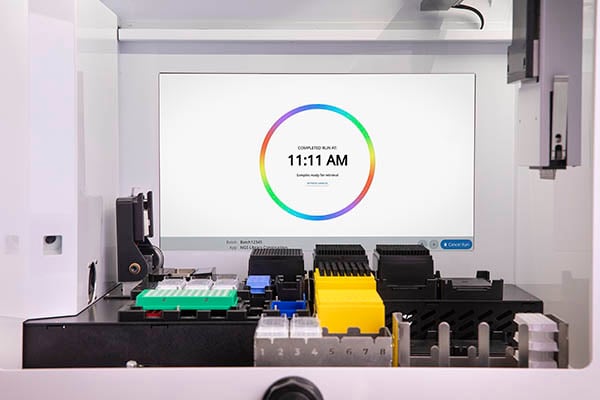
Figure 1. Biomek NGeniuS Next Generation Library Prep System
An all-in-one solution
The Biomek NGeniuS system is an affordable, scalable automated liquid handling solution that performs most the steps of NGS library preparation. It offers flexible application selection, intuitive user control, and easy batch set-up from any location using the Biomek NGeniuS Portal software*. The system supports batch sizes ranging from 4 to 24 samples, and is compatible with various reagent manufacturers. These features ensure broad accessibility and usability for oncology laboratories of all sizes.
Pan-cancer analyses
Traditional approaches to cancer research rely on sequential testing approaches, which involve multiple individual tests in series to reach definitive conclusions. In contrast, NGS enables a more expansive analysis with a single test, providing rapid and detailed insights that were previously unattainable. Modern chemistries – such as the TruSight Oncology 500 (TSO 500) pan-cancer panel from Illumina – enable comprehensive genomic profiling (CGP) to evaluate over 500 biomarkers in cancer, increasing the chances of identifying positive biomarkers in a single assay.
The TSO 500 HT, Illumina’s high throughput version of the kit, has already been successfully automated on the Biomek i7 Automated Workstation – our most powerful and comprehensive automation solution – and is now also compatible with the Biomek NGeniuS system. This expansion makes the technology more suitable for lower throughput laboratories seeking a more affordable way to streamline their genomic workflows.
Sequencing simplified
Manual NGS library preparation is highly labor intensive and requires skilled pipetting, while still running the risk of human error. On the other hand, automating pre-sequencing protocols offers several benefits: increased walkaway time, less inter-user variability to improve consistency, and faster turnaround times.
The Biomek NGeniuS system can operate completely independently – even outside of laboratory hours – with integrated thermal cycling and high-density tip storage to extend walkaway times and enhance sequencing throughputs. Crucially, its unique instrument design and software functionality eliminate the need for advanced programming skills, allowing users to easily set up library preparation protocols for various sequencing applications. The integrated user interface – with a large screen and navigation dial – is designed to be accessible and intuitive, while built-in cameras and liquid detection systems can identify most loading errors, preventing issues before a run even begins. These features eliminate many of the common barriers to automation for researchers.
Supporting future cancer discoveries
Cutting-edge genomics technologies have traditionally been difficult to access for smaller, low throughput oncology laboratories, but recent advancements in NGS technologies are shifting this balance. The Biomek NGeniuS system – an affordable and user-friendly liquid handling platform for NGS sample preparation – is playing a pivotal role in breaking down these barriers, enabling pan-cancer NGS analyses in a single, simplified workflow. This will allow more researchers to conduct NGS workflows and carry out translational research aimed at discovering new cancer treatments and biomarkers, opening up possibilities for laboratories of all sizes to make significant contributions to the field.
Contact us to find out more about how we can support your oncology research.
References
1 https://cancerprogressreport.aacr.org/progress/cpr20-contents/cpr20-understanding-how-cancer-develops/
2 https://doi.org/10.1016/j.eclinm.2023.102029
About the Author

Alexander Sahm is a Global Product Manager specializing in NGS at Beckman Coulter Life Sciences. With extensive experience in the field of genomics and biotechnology, Alexander plays a pivotal role in driving the development and management of advanced sequencing products. His expertise helps in shaping innovative solutions that cater to the evolving needs of researchers and clinicians in the genomics community. Alexander's contributions are integral to our company's mission to advance scientific discovery and improve healthcare outcomes through cutting-edge technology and solutions.


